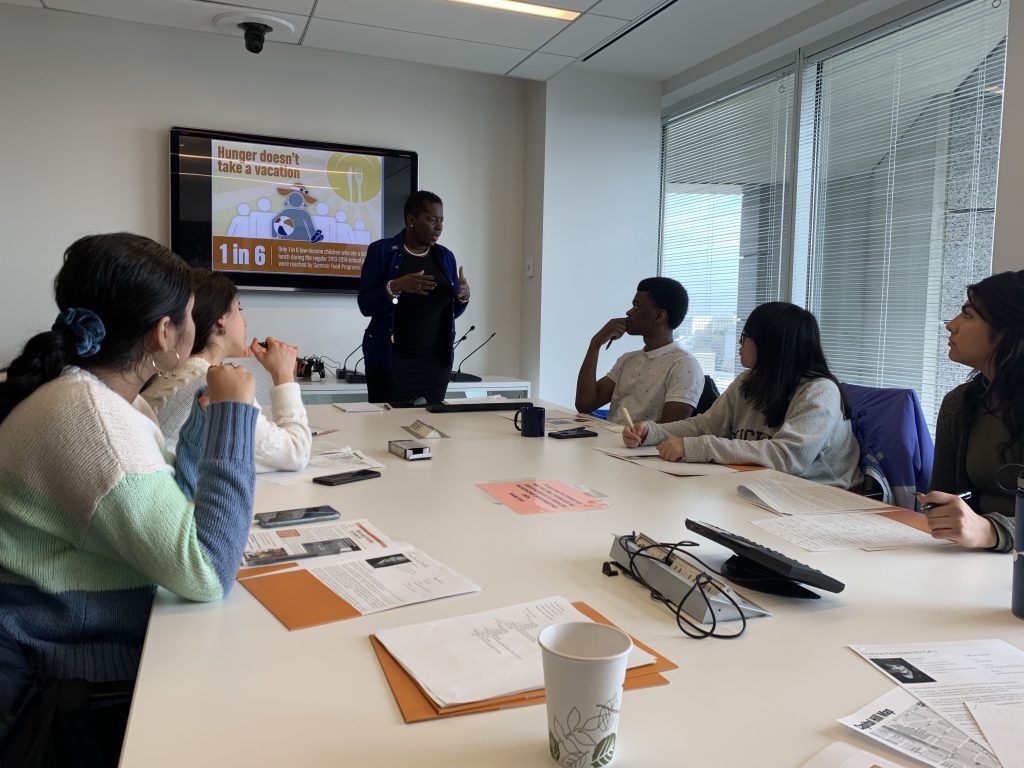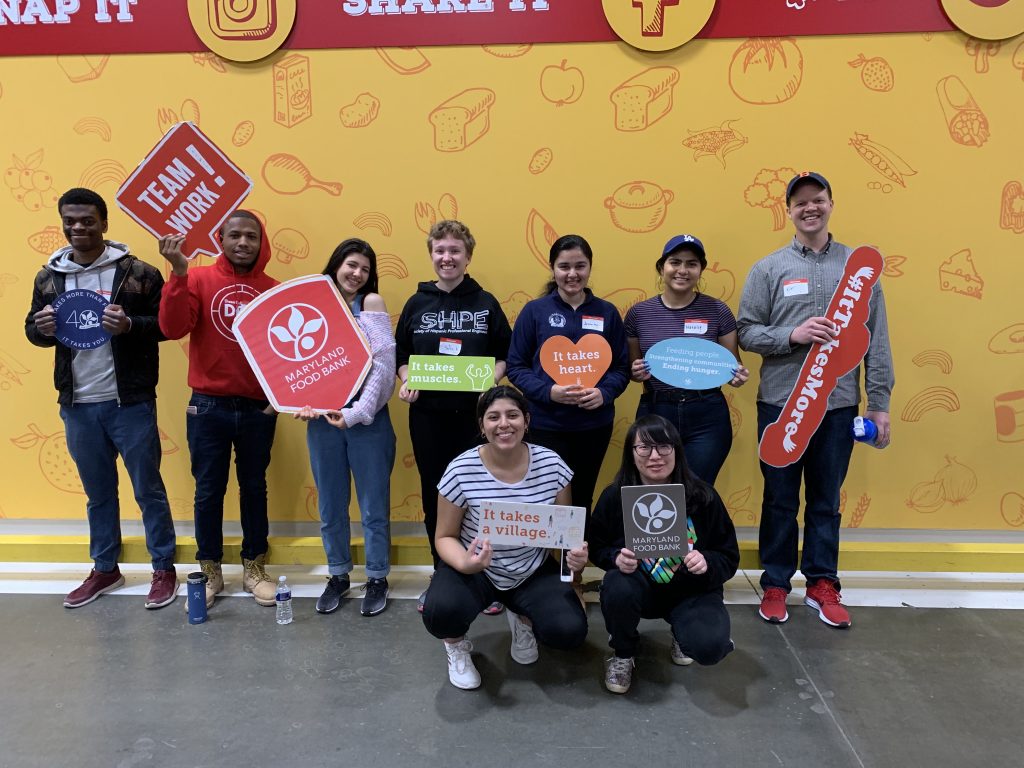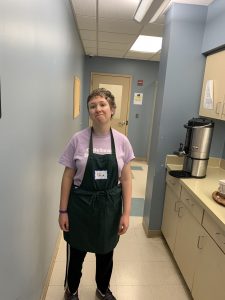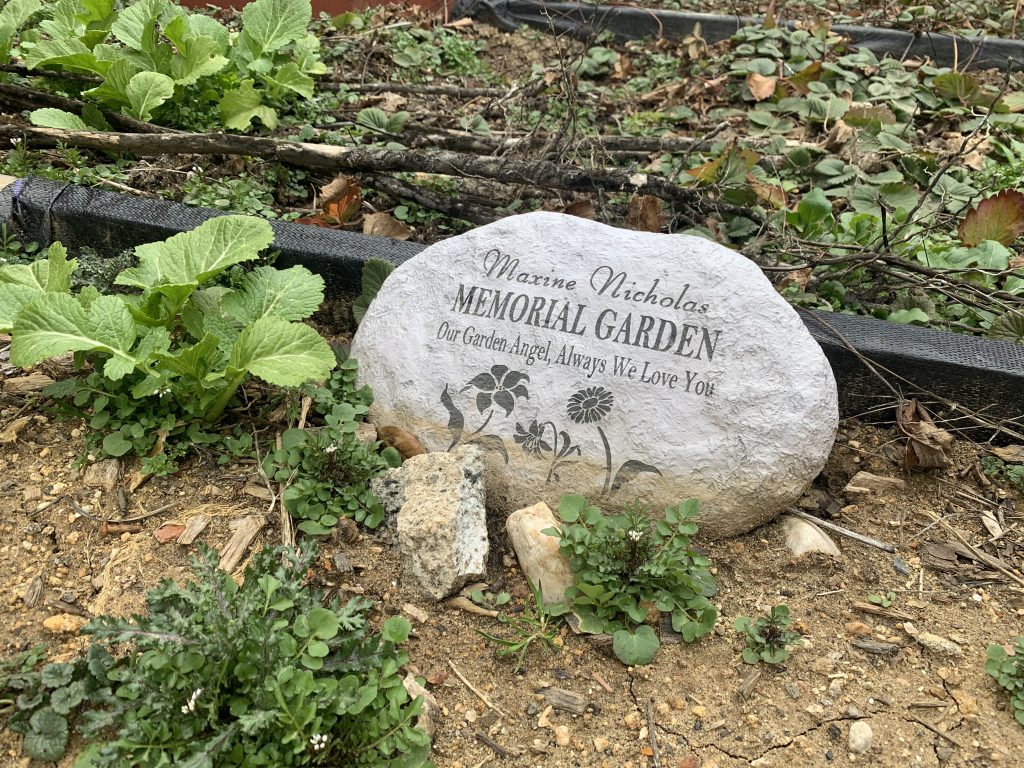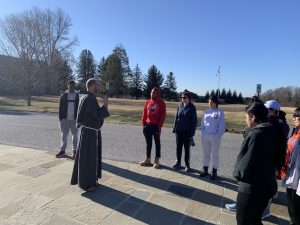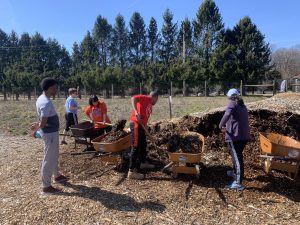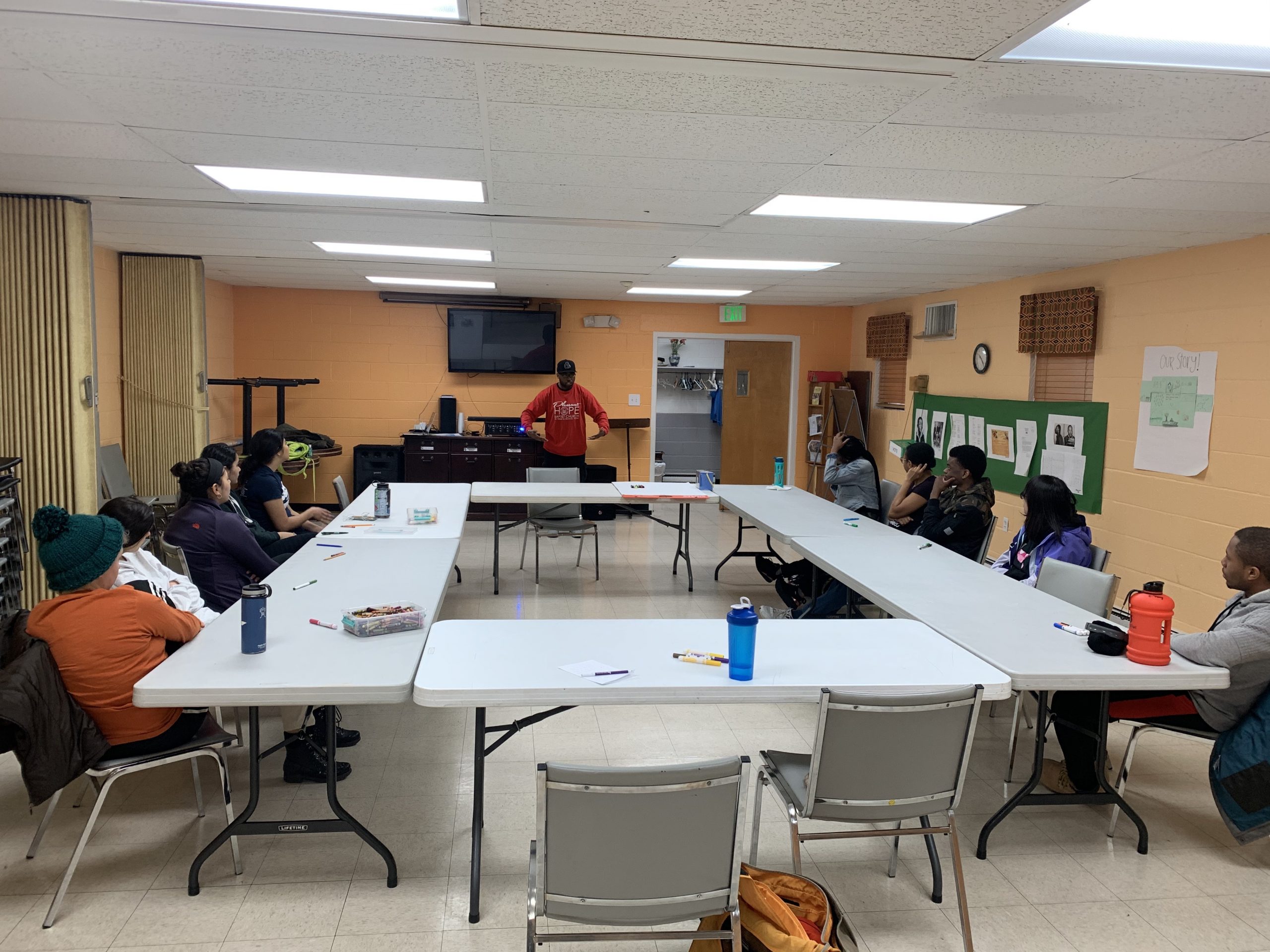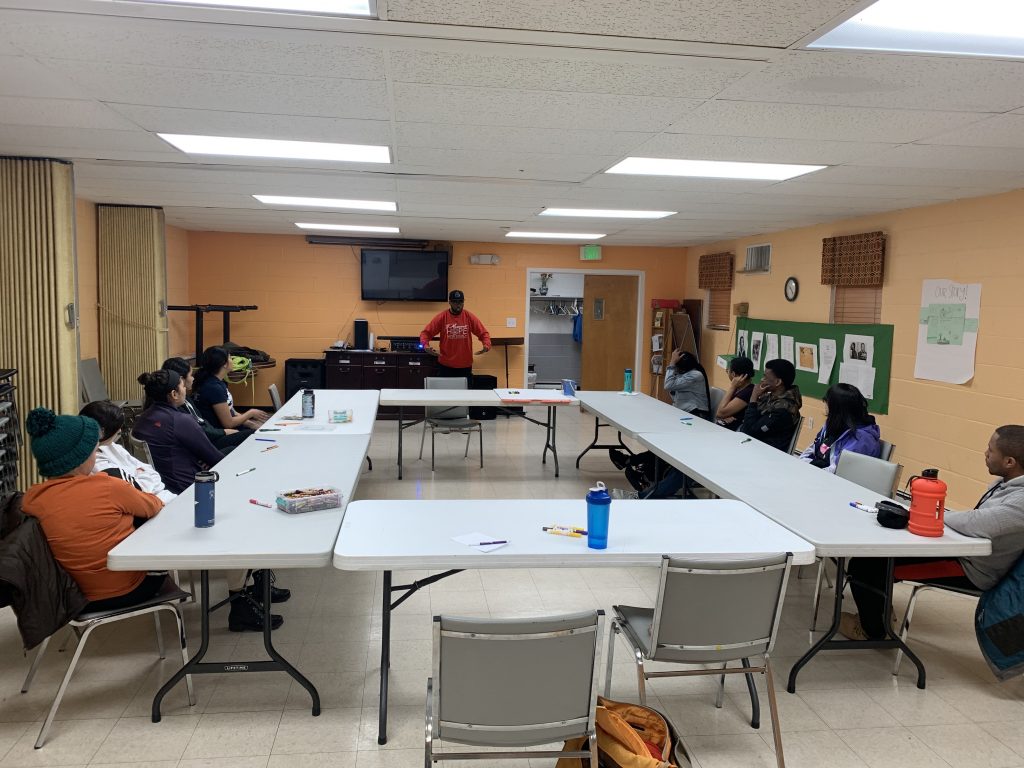What do we do now?
Food insecurity is everywhere. Many people fail to acknowledge how it looks like or what it really means. We tend to ignore these issues and make several assumptions about them. This trip to Baltimore really opened my eyes even more to those food insecure and what they have to go through every day. From being volunteers at Our Daily Bread to getting to learn how different religions tackle the issue of food insecurity, it’s time we recognize what we can do to help.
I was able to have the wonderful opportunity to meet with several non-profit organizations and see their POV in all of this. As long as we work together and acknowledge that food insecurity is real, is when we can finally make a bigger change. All these non-profit organizations have done their part, and we should start doing our own. Whether it’s volunteering at a soup kitchen or donating food, we can all come together to make a greater change in this world regarding food insecurity. All it takes is the right motives to help and put forth the effort.
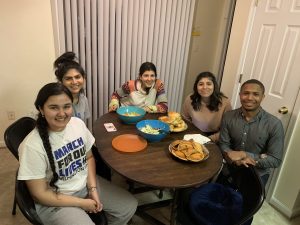
We want everyone to have the opportunity to have nutritious food and with doing so, helps them in the long run.
Being on this trip has taught me to always help in ANY way you can. It has also taught me that the connections and relationships you build with other people really makes a difference to come together and tackle this issue. I was able to get to know my group a little bit better and in what ways they are involved with helping those food insecure, and I am grateful for that. I also wanted to say thank you to our Chaplain, Kurt Nelson, for giving us this great opportunity to
build connections with others and learn the various ways people from different organizations have helped to minimize food insecurity. Unfortunately, we will not be able to meet face to face with our group for the remainder of the semester, but this trip definitely motivated us even more to help bring awareness of the truths of food insecurity to our own communities and make a
difference. Now, I’ll ask you this. What will you do?
